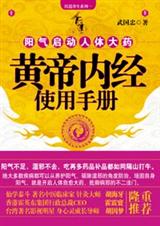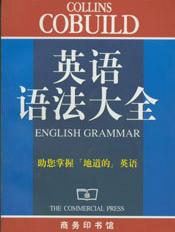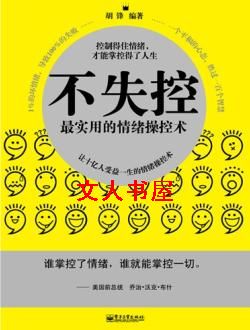牛津实用英语语法-第56章
按键盘上方向键 ← 或 → 可快速上下翻页,按键盘上的 Enter 键可回到本书目录页,按键盘上方向键 ↑ 可回到本页顶部!
————未阅读完?加入书签已便下次继续阅读!
第二十章?时态的呼应?
?
'Amber demo'
217从句
?
一个句子可以包含一个主句和一个或多个从句。从句是含有主语和谓语的一组词,它同时又是构成一个句子的组成部分:
We knew that the bridge was unsafe.
我们知道那座桥不安全。
He gave it to me because he trusted me.
因为他信任我,才把它交给我的。
He ran faster than we did.
他比我们跑得快。
This is the picture that I bought in Rome.
这就是我在罗马买的那幅画。
(在以上各个例句中,黑体的是从句。第218节同此。)
其他的从句的例子见条件句、关系代词以及目的从句、比较从句、时间从句、结果从句、让步从句等有关章节。学生不需要详细研究各种从句,甚至也不必做到能辨认各种从句,但必须学会识别哪些动词是主句中的主要动词,因为这关系到下面这个重要规则。
?
'Amber demo'
218 时态的呼应
?
如果主句的主要动词是过去时态,从句的主要动词也必须是过去时态:
==================================
ABC Amber CHM Converter v6。22
Trial version
==================================
注意动词不定式和动名词不受以上规则影响:
He wants to go to Lyons.
他想去里昂。
He wanted to go to Lyons.
他那时想去里昂。
He likes riding.
他喜欢骑马。
He liked riding.
他过去喜欢骑马。
引导间接引语的动词如是过去时态,时态呼应的规则也适用。(参见第三十一章。)
?
'Amber demo'
第二十一章?条件语气?
?
'Amber demo'
条件时态?
?
'Amber demo'
219 条件现在时
?
A 条件现在时由would/should+动词原形构成(用于第一人称),或由would+动词原形构成(用于其他人称)。
肯定式:牋牋牋牋 I would/I’d work/I should work
牋牋牋牋牋牋牋 you would/you’d work等
否定式:牋牋牋牋 I would not/wouldn’t work或
牋牋牋牋牋牋牋牋牋牋牋 I should not/shouldn’t work
牋牋牋牋牋牋牋牋牋牋牋 you would not/wouldn’t work等
疑问式:牋牋牋牋 would/should I work?
牋牋牋牋牋牋牋牋牋牋牋 would you work?等
否定疑问式:?should I not/shouldn’t I work?
牋牋牋牋牋牋牋牋牋牋牋 would you not/wouldn’t you work?等
B 这种形式用于:
(a)条件句中。(参见第221节至第229节。)
(b)would和should的特殊用法中。(参见第二十二章。)
(c)过去将来时。当主句的主要动词是过去时的时候,从句中就必须用 would/should而不用 will/shall:
I hope(that) I will/shall succeed.
我希望我会成功。
I hoped(that) I would/should succeed.
我曾希望我会成功。
I know(that) he will be in time.
我知道他会赶得上的。
I knew(that) he would be in time.
我当时知道他会赶得上的。
He thinks(that) they will give him a visa.
他想他们会给他签证。
He thought(that) they would give him a visa.
他本想他们会给他签证。
I expect(that)the plane will be diverted.
我料想飞机会改变航线。
I expected(that)the plane would be diverted.
我本料想飞机会改变航线。
(关于will/shall,would/should在间接引语中的用法,参见第三十一章。)
?
'Amber demo'
220 条件完成时
?
A 这种时态由would/should+完成式构成:
肯定式:牋牋牋牋牋牋 I would/should have worked
牋牋牋牋牋牋牋牋牋牋牋牋牋 you would have worked等
否定式:牋牋牋牋牋牋 I would not/should not have worked等
疑问式:牋牋牋牋牋牋 would/should I have worked?等
否定疑问式:牋牋?should I not have/shouldn’t I have worked?
牋牋牋牋牋牋牋牋牋牋牋牋牋 would you not have/wouldn’t you have worked?
等其他缩略形式参见第219节。
B 这种形式用于:
(a)条件句中。(参见第221节至第229节。)
(b)would和should的特殊用法中。(参见第230节至第节。)
(c)过去时中,相当于将来完成时:
I hope he will have finished before we get back.
我希望在我们回来之前他已经做完。
I hoped he would have finished before we got back.
我曾经希望在我们回来之前他已经做完。?
?
'Amber demo'
条件句
?
条件句由两部分组成: if从句+主句:
If it rains I shall stay at home.
如果下雨我就呆在家里。
If it rains是 if从句, I shall stay at home是主句。条件句有三种,每种所含的一对时态都不一样。每种条件句内还可能有某些变化,但初学条件句者可不必理会这些变化,而把注意力放在条件句的基本形式上。
?
'Amber demo'
221 条件句类型1
?
A if从句中的动词是一般现在时,主句的动词是一般将来时。主句和从句的先后次序无关紧要。
If he runs he’ll get there in time.
如果他跑步去就会及时赶到那里。
The cat will scratch you if you pull her tail.
如果你拉猫的尾巴,它会抓你。
这种类型的句子意味着if从句中的动作很可能发生。
注意:这里的含义是现在或将来,但if从句中的动词是一般现在时而不是一般将来时。if+will/would只能用于表示某些特殊含义时。(参见第224节。)
B 基本形式可能的变化形式
1 主句的变化
除if+一般现在时+一般将来时外,可能是:
(a)if+一般现在时+may/might(可能性)
If the fog gets thicker the plane may/might be diverted.
如果雾再大,飞机就可能改飞别的机场降落。(也许飞机确实会改飞别的机场降落。)
(b) if+一般现在时+ may(允许)/can(允许或能力)
If your documents are in order you may/can leave at once.
如果你的证明文件都齐备了你可以马上就走。(允许)
If it stops snowing we can go out.
如果雪停了我们就可以出去了。(允许或能力)
(c)if+一般现在时+must,should或任何表示命令、请求或劝告的形式:
If you want to lose weight you must/should eat less bread.
如果你想减轻体重,你必须/应该少吃面包。
If you want to lose weight you had better eat less bread.
如果你想减轻体重,最好少吃面包。
If you want to lose weight eat less bread.
如果你想减轻体重,少吃面包。
If you see Tom tomorrow could you ask him to ring me?
如果你明天见到汤姆,你能让他给我打个电话吗?
(d)if+一般现在时+一般现在时
if+两个一般现在时可以用来表示自动产生或照例会产生的结果:
If you heat ice it turns to water.
如果把冰加热,它就化成水。(也可以用will turn。)
If there is a shortage of any product prices of that product go up.
如果某种产品短缺,那种产品的价格就上涨。
(e)当if用来表示 as/since(参见第338节A)时,主句中就可能使用多种不同时态:
—Ann hates London.
—If she hates it why does she live there?/she ought to move out.
—安讨厌伦敦。
—既然她讨厌伦敦,她为什么还住在那里?/她应当搬走。(If she hates it可用If so来代替。)
当然这已不是一个真正的条件句了。
2 if从句的各种变化形式
if+一般现在时可能用下列时态替代以表示条件:
(a)if+现在进行时,表示现在的动作或将来的安排:
If you are waiting for a bus you’d better join the queue.
如果你是在等公共汽车,你最好排队。(现在的动作)
If you are looking for Peter you’ll find him upstairs.
如果你是在找彼得,到楼上就会找到他。(现在的动作)
If you are staying for another night I’ll ask the manager to give you a bet-ter room.
如果你还要住一夜,我就请经理给你安排一个好一点的房间。(将来的安排)
(b)if+现在完成时:
If you have finished dinner I’ll ask the waiter for the bill.
如果你吃完了,我就叫侍者来算帐。
If he has written the letter I’ll post it.
如果他写完了信,我就把它寄走。
If they haven’t seen the museum we’d better go there today.
如果他们没参观过那个博物馆,我们今天最好去那里。
?
'Amber demo'
222 条件句类型2
?
A if从句中的动词用一般过去时,主句中的动词用条件时态:
If I had a map I would lend it to you.
我要有地图就借给你。(但我没有地图。句子的含义是指现在。)
If someone tried to blackmail me I would tell the police.
如果有人企图敲诈我,我就向警察告发。(但我想不会有人敲诈我。句子的含义是指将来。)
第一类和第二类条件句之间并不存在时间上的差别。像第一类条件句一样,第二类指的是现在或将来; if从句中的过去时不是真正的过去时,只是一种虚拟语气,表示不真实(如上述第一个例子)或不大可能(如上述第二个例子)。
B 类型2有以下用法:
1 所假设的事与已知的事实






